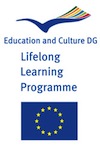University LLL
 Attention to university lifelong learning (ULLL) in the Bologna process started in a rather weak fashion but has been growing in strength as the primary objectives of the Process have been achieved. The original Bologna Declaration in 1999 had as one of its objectives: ‘ECTS compatible systems also covering lifelong learning'; and 2 years later in Prague, Ministers emphasised that ‘lifelong learning strategies are necessary to face the challenges of competitiveness and the use of new technologies and to improve social cohesion, equal opportunities and the quality of life.'
Attention to university lifelong learning (ULLL) in the Bologna process started in a rather weak fashion but has been growing in strength as the primary objectives of the Process have been achieved. The original Bologna Declaration in 1999 had as one of its objectives: ‘ECTS compatible systems also covering lifelong learning'; and 2 years later in Prague, Ministers emphasised that ‘lifelong learning strategies are necessary to face the challenges of competitiveness and the use of new technologies and to improve social cohesion, equal opportunities and the quality of life.'
However, there was no reference to ULLL in the action points and it remained somewhat secondary to the main concerns of implementing the BMD structure, quality issues and the EHE research area. The Trends Report for the Berlin meeting in 2003 (Reichert and Tauch 2003), not surprisingly, reported very patchy development of LLL strategies at institutional level with significant differences between countries, identifying that the ‘most salient problem is clearly the lack of integration of LLL provision in the general strategies, core processes and decision making of the institution'.
In the Communiqué following the Berlin meeting, Ministers called for the qualifications frameworks that were being developed to encompass a wide range of flexible learning paths, opportunities and techniques and to make appropriate use of ECTS credits. They also stressed the need to improve opportunities for all citizens to follow LLL paths into and within higher education. However, the Trends report prepared for the following meeting in Bergen in 2005 (Reichert and Tauch 2005) had no specific focus on LLL and the short section on ‘the recognition of non-formal/non-academic qualifications' claimed that ‘the topic is part of the wider theme of lifelong learning that has been much neglected so far in the Bologna discussion'.
The subsequent Communiqué from the Bergen meeting seemed to be attempting to redress this imbalance and to be promoting greater attention to LLL: ‘We see the development of national and European frameworks for qualifications as an opportunity to further embed lifelong learning in higher education. We will work with higher education institutions and others to improve recognition of prior learning, including where possible non-formal and informal learning for access to and as elements in, higher education programmes'. It stated that over the next 2 years to 2007, Ministers would look for progress in ‘creating opportunities for flexible learning paths in higher education, including procedures for the recognition of prior learning.' However, the Trends V Report (Crosier et al 2007) stated that ‘while the rhetoric on lifelong learning has been a constant feature of the policy discussion throughout the Bologna period, action has still to follow' (p64).
Although the emphasis on ULLL has been gradually increasing in the context of the Bologna reforms, as yet little systematic monitoring of the development of policy or the implementation of arrangements and practice at institutional level has taken place. The Trends Reports have collected some data but ULLL has not been a major part of their studies. The EUCEN experience as a network of universities committed to ULLL and its involvement both directly and through its members in a number of European projects and institutional initiatives all indicate that although developments are indeed ‘patchy', the rate of implementation is increasing and there are many emerging examples of innovative practice and some examples of universities that are seeking more radical approach of making ULLL the organising principle of all their provision in the BMD structure.
Since its foundation in 1991, EUCEN has sought to promote the concept of the lifelong learning and implement concrete policy and practice in universities and to foster universities' influence in the development of lifelong learning knowledge and policies throughout Europe. It is now the largest European Association working on this field. The definition of University Lifelong Learning (ULLL) which reflects the state of play at present, according a recent survey done by EUCEN (the European project BeFlex), is the following one. "ULLL is the provision by higher education institutions of learning opportunities, services and research for:
- the personal and professional development of a wide range of individuals - lifelong and lifewide;
- the social, cultural and economic development of communities and the region.
It is at university level and research-based; it focuses primarily on the needs of the learners; and it is often developed and/or provided in collaboration with stakeholders and external actors."
Recent projects granted by the European Commission reflect this commitment:
- BeFlex, a Socrates project, which has mapped the development of university lifelong learning in the reformed structure of higher education qualifications (Bologna process). The final reports are now available on the EUCEN website.
- EQUIPE, a Grundtvig project, which created a web-based toolbox of materials and services for enhancing the quality of university lifelong learning,
- Transfine and Refine, joint actions projects, proposed a European architecture for recognition of non formal and in formal learning that would foster transnational and trans-sectoral collaboration.


.png)
